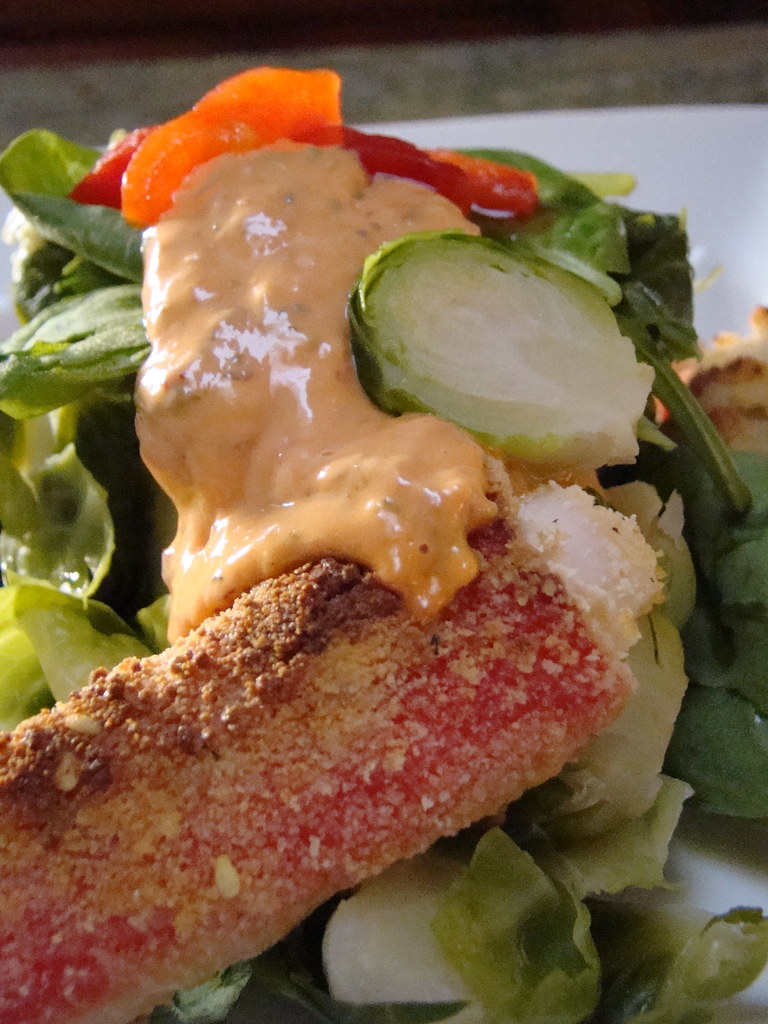Welcome to our mouthwatering culinary debate between Yum Yum Sauce and Spicy Mayo! These two well-liked condiments have surely whetted your appetite, whether you want a spicy kick in your sandwiches, enjoy fried appetisers, or both. Although they both have unquestionably delicious flavours, they differ in specific ways. We’ll discuss the main distinctions between Yum Yum Sauce and Spicy Mayo in this blog.
As the name implies, spicy mayo is a creamy and fiery mixture produced by combining mayonnaise with hot sauce or Sriracha. Contrarily, Yum Yum Sauce, sometimes referred to as shrimp sauce or white sauce, is a softer and tangier dressing that is produced with a base of mayonnaise, tomato paste, and additional ingredients including vinegar, garlic powder, and paprika.
The following table lists the main distinctions between Yum Yum Sauce and Spicy Mayo:
| Spicy Mayo | Yum Yum Sauce | |
| Base | Mayonnaise | Mayonnaise |
| Flavor Profile | Creamy and fiery | Mildly tangy and slightly sweet |
| Spiciness Level | Can vary from mild to very spicy | Not spicy |
| Main Ingredients | Mayonnaise, hot sauce/Sriracha, garlic powder, onion powder | Mayonnaise, tomato paste, vinegar, garlic powder, paprika |
| Color | Off-white to light orange | Light pink to light orange |
| Texture | Creamy and smooth | Creamy and smooth |
| Origin | Not tied to a specific cuisine | Commonly associated with Japanese cuisine |
| Heat Level | Adjustable based on preferred spiciness | No heat |
In a variety of meals, both sauces are frequently utilised.
Spicy Mayo:
- Sushi Rolls: For an extra kick, spicy mayo is frequently sprinkled on sushi rolls like spicy tuna or spicy salmon rolls.
- Sandwiches and Burgers: To improve the flavour and add a creamy and spicy element, you may spread it on sandwiches, wraps, or hamburgers.
- Spicy mayo is frequently used as a dipping sauce for appetisers including tempura, chicken tenders, and french fries.
- Seafood: It adds a zesty and creamy element to seafood meals like shrimp, crab cakes, or fish tacos.
Yum Yum Sauce:
- Hibachi and Teppanyaki: Yum Yum Sauce is a common addition to grilled meats, seafood, and vegetables in Japanese hibachi and teppanyaki restaurants.
- It can be used as a dipping sauce for fried appetisers, spring rolls, or dumplings.
- Rice & Noodles: Yum Yum Sauce can be used to add a creamy and tangy flavour boost to fried rice or noodles.
- Grilled Meats: It adds a creamy and somewhat sweet flavour to grilled chicken, steak, or pig and makes a superb side dish.
These are only a few applications for Spicy Mayo and Yum Yum Sauce, but because to their adaptability, they may be employed in a variety of other foods according to taste and inventiveness.

Is there other names for Yum Yum sauce?
Yes, depending on the area and situation, Yum Yum Sauce is known by a variety of other names. Yum Yum Sauce has some alternate names like:
- In Japanese hibachi and teppanyaki restaurants, shrimp dishes are frequently served with yum yum sauce, also known as shrimp sauce.
- Yum Yum Sauce is frequently referred to as “white sauce” because of its creamy, white colour.
- Japanese Steakhouse Sauce: Yum Yum Sauce is typically related to Japanese teppanyaki or hibachi restaurants where it is frequently served with grilled meats and vegetables.
- Sakura Sauce: Yum Yum Sauce may be referred to as Sakura Sauce in some Japanese eateries or sushi bars, drawing inspiration from the cherry blossom theme frequently connected to Japanese culture.
Depending on the location or establishment, these other names may be more or less popular, but they all refer to the same flavorful, creamy condiment that is adored for its adaptability and complimentary qualities in a variety of cuisines.

Are there any vegan or dairy-free alternatives for Spicy Mayo and Yum Yum Sauce?
Both Spicy Mayo and Yum Yum Sauce are available in vegan and dairy-free varieties. To make these delectable condiments without using any animal products, follow these instructions:
Vegan Spicy Mayo: Ingredients:
- 1/2 cup vegan mayonnaise (made from plant-based oils)
- 1 tablespoon hot sauce (check for vegan-friendly options)
- 1/2 teaspoon garlic powder
- 1/2 teaspoon onion powder
- Salt and pepper to taste
Instructions:
- In a bowl, combine vegan mayonnaise, hot sauce, garlic powder, onion powder, salt, and pepper.
- Whisk together until well combined and creamy.
- Taste and adjust the seasoning as per your preference.
- Transfer the vegan Spicy Mayo to a jar or container and refrigerate until ready to use.
Dairy-Free Yum Yum Sauce: Ingredients:
- 1/2 cup dairy-free mayonnaise (made from plant-based oils)
- 2 tablespoons tomato paste
- 1 tablespoon rice vinegar or apple cider vinegar
- 1 tablespoon agave syrup or maple syrup
- 1/2 teaspoon garlic powder
- 1/2 teaspoon paprika
- Salt and pepper to taste
Instructions:
- In a bowl, whisk together dairy-free mayonnaise, tomato paste, rice vinegar, agave syrup, garlic powder, paprika, salt, and pepper.
- Continue whisking until all the ingredients are well combined and the sauce is smooth.
- Taste and adjust the seasoning according to your preference.
- Transfer the dairy-free Yum Yum Sauce to a jar or container and refrigerate until ready to serve.
You may enjoy the flavour and creamy texture of Spicy Mayo and Yum Yum Sauce without consuming any animal products thanks to these vegan and dairy-free substitutes.
Relevant Articles
Tahini sauce vs Tzatziki sauce: What Is The Difference?

Comments are closed